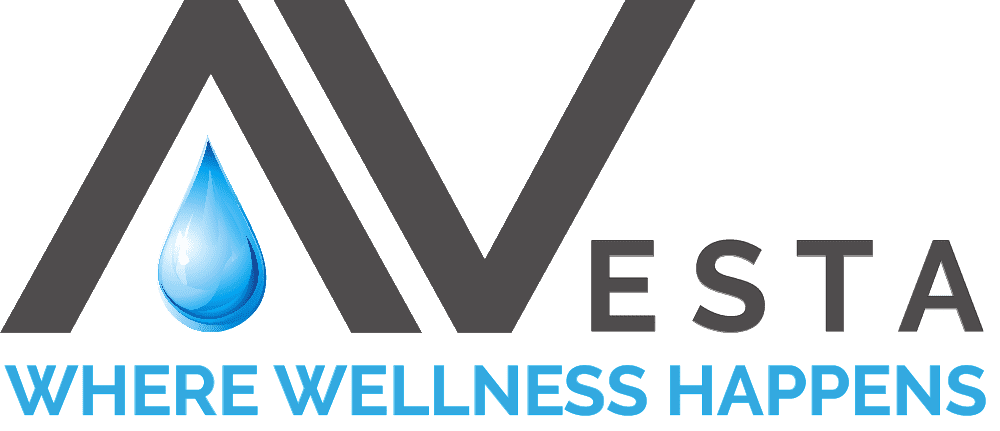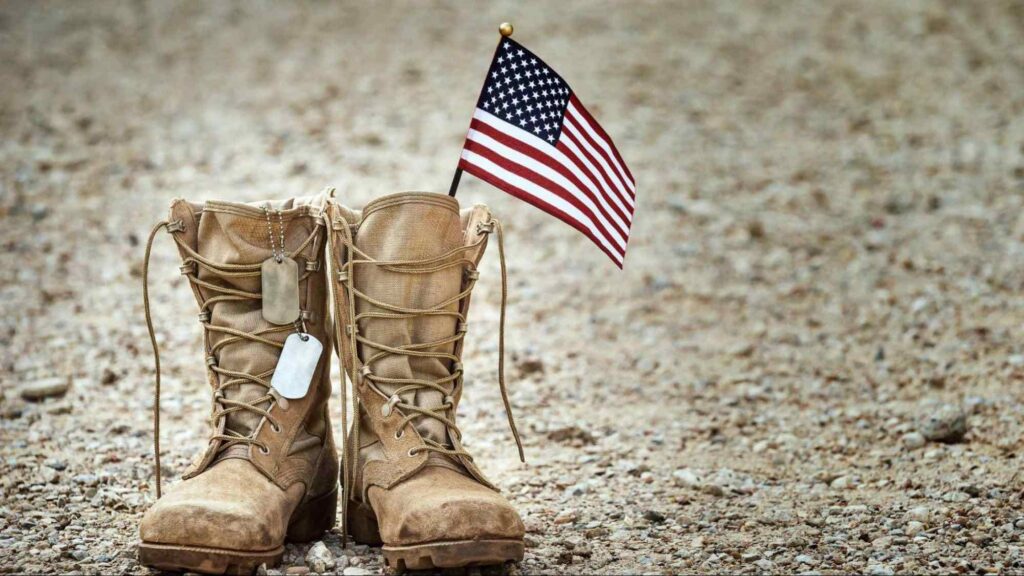Written by Dr. Ladan Eshkevari
In this Post:
- Why Do Veterans Commit Suicide?
- How Many Veterans Commit Suicide a Day?
- Suicide Rates By Military Branch
- Approaches to Military and Veteran Suicide Prevention
- Ketamine Therapy for Veterans: An Effective Strategy
- How Veterans Can Access Ketamine Therapy
- The Bottom Line
The surge in military suicides highlights a crisis that demands immediate and effective solutions. Amidst today’s treatment options, ketamine therapy for veterans offers a beacon of hope. Ketamine is a fast-acting medicine that combats the conditions linked to suicide risks, including post-traumatic stress disorder (PTSD), depression, and traumatic brain injury (TBI). Ketamine therapy addresses the urgent need for interventions that can swiftly alter the despairing trajectory of veterans and service members.
This article delves into the reasons behind military suicides and explores how ketamine therapy for veterans offers a promising path forward.
Why Do Veterans Commit Suicide?
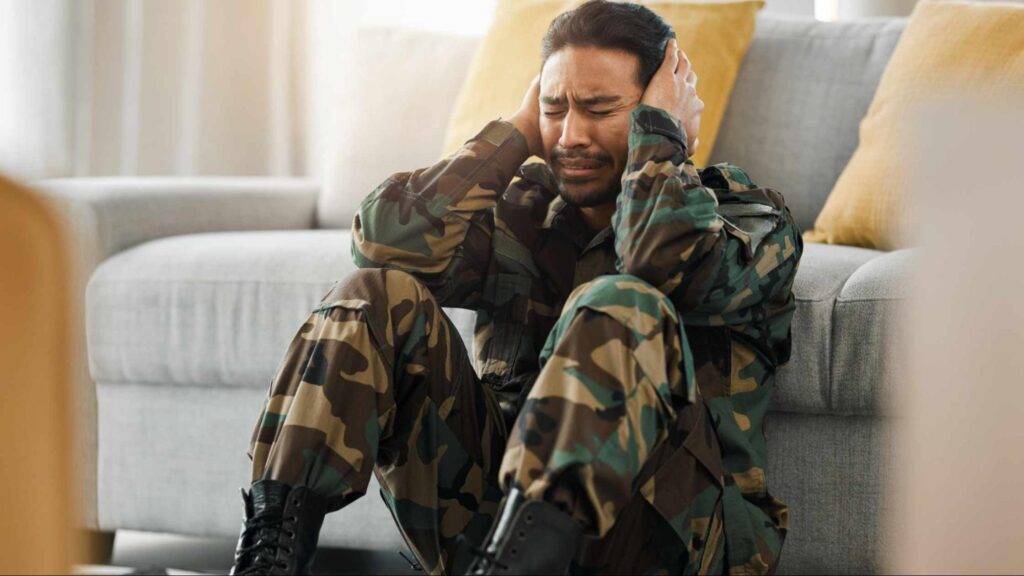
Veteran suicide is inextricably linked to post-traumatic stress disorder (PTSD) and/or traumatic brain injury (TBI). PTSD is a mental health condition triggered by a terrifying event, causing flashbacks, severe anxiety, and uncontrollable thoughts about the incident. One study found that PTSD symptoms, specifically depression, anger, and internal hostility, indicate a higher suicide risk.
Vietnam was one of the first wars known for causing mass PTSD. According to an observational study of 187 Vietnam veterans, survivor guilt, depression, anxiety, and PTSD all played a role in suicidal behavior. However, intensive combat guilt was the most significant factor for suicide among those with PTSD.
Vietnam veterans faced significant horrors. But they weren’t the only ones. Combat veterans across all wars are more likely to commit suicide than noncombat veterans because of factors like stressful exposures, wounds, brain trauma, and pain syndrome, which may interact with social factors, interpersonal relations, and psychological variables.
For post-9/11 veterans, suicide accounted for 22.3% of all deaths–the second-highest leading cause of death.
More recently, traumatic brain injury (TBI) has risen to the surface of concern. A 2023 study found that military-related traumatic brain injury is associated with higher rates of new-onset mental health conditions and increased suicide risk among veterans and active service members.
Demographics also play a role in veterans’ suicide rates. A 2007 prospective population-based study found that caucasian veterans with fewer than 12 years of education and mental or physical limitations are at a greater risk for successfully committing suicide than those outside of that population. Living in rural areas, including Arkansas, with a lack of adequate healthcare access is another key suicide risk factor.

How Many Veterans Commit Suicide a Day?
A 2021 research study found that approximately 17.5 veterans die by suicide daily in the United States. However, a recent Veteran’s Warrior Partnership report suggested those numbers were underreported by more than half. The non-profit indicated that as many as 44 veterans commit occur each day.
Severe PTSD, depression, anxiety, hostility, and guilt, along with demographic factors and inadequate mental health care, have led to an alarming rise in unnecessary deaths.
Suicide Rates by Military Branch
Along with veterans, active service members struggle with mental illness and suicide, albeit to a lesser degree. A review of 2022 suicide rates by military branch shows that the Marines are at the highest risk, followed by the Army, Navy, and Air Force, respectively.
- Marines: 61 active duty marines and six reservists took their lives in 2022.
- US Army: In 2022, the US Army suicide rate was 28.9 service members in 100,000.
- Navy: 20.6 in 100,000 Navy members died by suicide in 2022.
- Air Force: In the Air Force, 19.7 per 100,000 service members took their lives in 2022.
- Space Force: No one in the Space Force committed suicide in 2022.
Suicide in the military is also related to demographics, according to recent research. Among US Army members, American Indian/Alaskan Natives are 1.51 times more likely to die by suicide compared to White non-Hispanic individuals.
Approaches to Military and Veteran Suicide Prevention
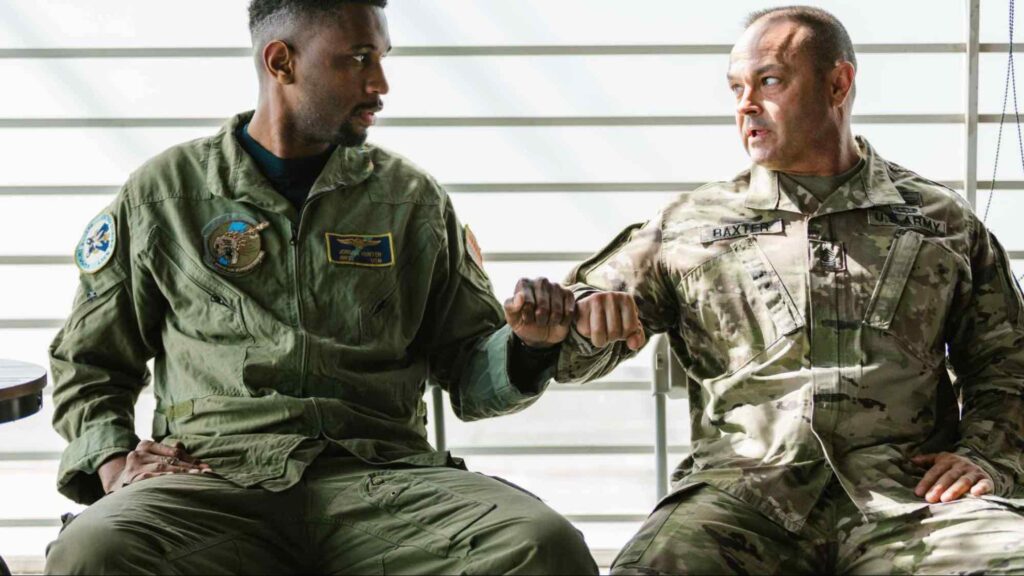
The US Department of Defense (DOD) is keenly aware that suicide and mental illness in the military is a significant problem. During National Suicide Prevention Month last year, the DOD announced new suicide prevention measures, including:
- Fostering a supportive environment that encourages openness and community.
- Improving the delivery and accessibility of mental health care services.
- Addressing stigma and other barriers to seeking mental health care.
- Revising and enhancing suicide prevention training programs.
- Promoting a culture of safety around lethal means, including firearms and medications.
A few months after the DOD’s announcement, the Department of Veterans Affairs (VA) published a National Veteran Suicide Prevention Annual Report.
The 2021 report (which may have underreported numbers) revealed that 6,392 veterans died by suicide, at least 114 more veterans than in 2020. To address this rise, the VA said it intends to initiate a comprehensive hiring campaign for mental health professionals and expand training programs for these roles. Shereef Elnahal, the VA’s Under Secretary for Health, emphasized the critical link between increased mental health staffing and the reduction of suicidal behaviors.
Increased mental healthcare staffing will certainly help. But, veterans in rural areas may still struggle from lack of access.
To combat rural healthcare scarcities, Arkansas researchers propose peer-to-peer delivery among veterans in these areas. Peer-to-peer delivery involves veterans who have experienced suicidal thoughts becoming trained in suicide prevention to provide emotional support to their peers.
Ketamine Therapy for Veterans: An Effective Strategy for Suicide Prevention
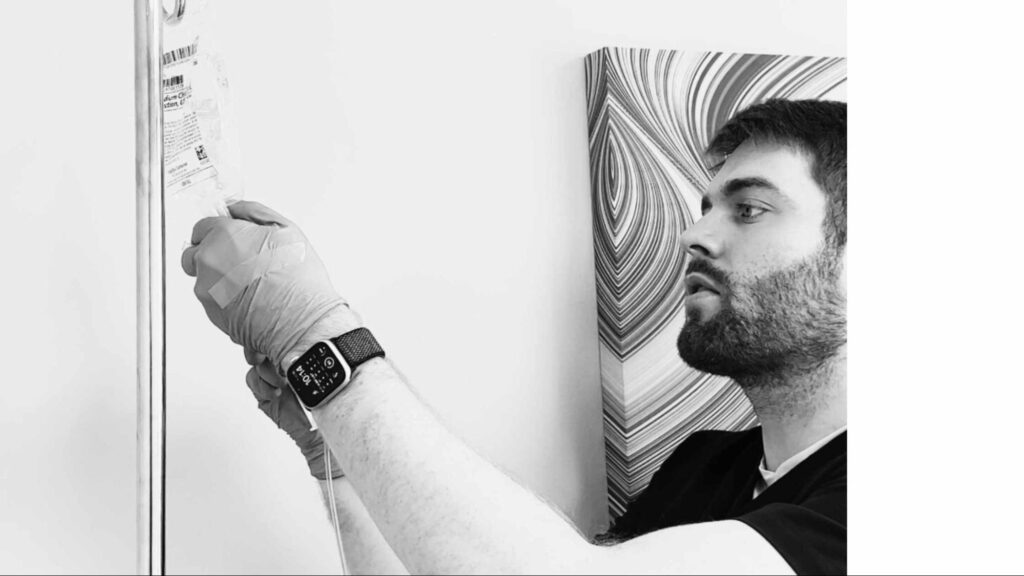
Peer-to-peer support, increased mental health education, and traditional talk therapy are all part of the solution to prevent military and veteran suicides. Unfortunately, they’re not always practical. Severe PTSD, treatment-resistant depression, and traumatic brain injury often need more comprehensive interventions that can rapidly rewire the brain and reset emotions. Ketamine treatment and psychedelic therapy are one of those tools.
Decades of clinical research show that relatively low doses of ketamine can reverse suicidal thoughts in hours and resolve treatment-resistant depression and PTSD. Emerging research suggests ketamine could even treat neuropsychiatric complications that arise after brain injuries, including depression, PTSD, and loss of pleasure.
The Veterans Mental Health Leadership Coalition is keenly aware of ketamine’s benefits, partnering with organizations like Avesta to bring this message to Capitol Hill. In March, Avesta, alongside psychedelic therapy proponents and bi-partisan senators, joined the Coalition to propose legislation that would drastically increase access to veterans in need. Avesta is committed to its part in the process by supporting psychedelic research and offering compassionate care to veterans today.
How does ketamine work?
Ketamine is a dissociative anesthetic that impacts neural transmitters to improve mood, increase synaptic plasticity, and help restore connections within the brain that are affected by stress and depression. On the surface, ketamine’s effects seem similar to antidepressants, including SSRIs, SNRIs, and MAOIs. However, ketamine works on entirely different systems with extraordinarily distinct outcomes.
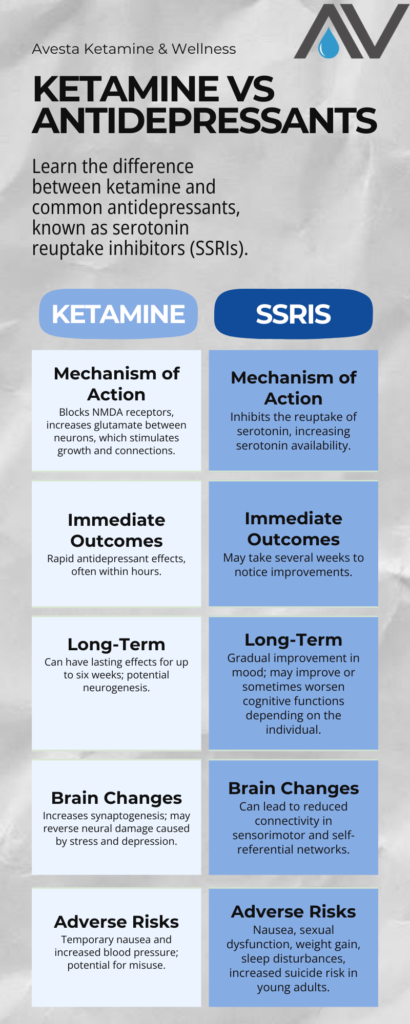
The evidence for ketamine’s healing powers is so undeniable that the Defense Department and Veterans Affairs have indicated their support.
In 2022, the DOD approved the ketamine-based antidepressant nasal spray Spravato for Tricare beneficiaries on a case-by-case basis. Tricare is a health insurance company that serves active military members, retirees, and family members, integrating the military health system with civilian private healthcare.
In 2022, Veterans Affairs provided general ketamine therapy guidance to the VA Pharmacy Benefits Management Services, Medical Advisory Panel, VISN Pharmacist Executives, and the Office of Mental Health Somatic Treatment Field Advisory Committee. It offered direction on ensuring access to intravenous ketamine for the treatment of treatment-resistant major depressive disorder or severe suicidal ideation under a National VA protocol.
The VA has also partnered with private ketamine centers, like Avesta, to cover IV ketamine therapy for veterans through Veterans Care Agreements.

Research supporting ketamine therapy for veterans
Clinical ketamine therapy research has been mounting for more than two decades.
In recent years, ketamine research has begun incorporating veterans and active duty military in its trials, and the findings offer significant hope. Observational studies and clinical trials show that ketamine can rapidly and significantly improve suicidal preconditions, including severe PTSD and depression.
PTSD & Depression
- In 2019, combat veterans participated in an observational study using six high-dose ketamine infusions aiming for a transpersonal dissociative experience to treat post-traumatic stress disorder (PTSD). Researchers assessed changes in depression, PTSD, and substance use among 30 veterans before and after treatment. Findings revealed significant reductions in depression and PTSD symptoms, while substance use levels showed a downward trend without substantial change.
- In 2022, a double-blind, randomized, placebo-controlled study out of Yale investigated the efficacy of repeated ketamine doses for PTSD in patients who did not respond to antidepressants. Researchers compared low doses of ketamine, 0.2 mg/kg, to standard doses of 0.5 mg/kg. In the end, ketamine did not cure PTSD, but standard doses significantly and rapidly improved associated depression symptoms. Low doses did not.
Suicide
Researchers have not yet studied ketamine’s effect on suicidality in veterans populations. However, significant civilian research proves ketamine can reverse suicidal thoughts in hours.
- A pilot study in 2022 investigated ketamine for people who recently attempted suicide in a real-world medical setting. After a single dose of intravenous ketamine, sixteen patients reported rapid and significant reductions in suicidal ideation and depression. Even more hopeful, the patients maintained these benefits up to six months post-infusion.
How Veterans Can Access Ketamine Therapy
Ketamine’s healing powers are undeniable. However, ketamine clinics don’t exist everywhere in the country. And high treatment costs often deter people from getting the help they need.
Veterans and active service members seeking affordable ketamine therapy treatment have a few avenues to explore. These include Tricare-covered Spravato and VA-covered IV infusions.
Tricare-covered Spravato treatment for military members
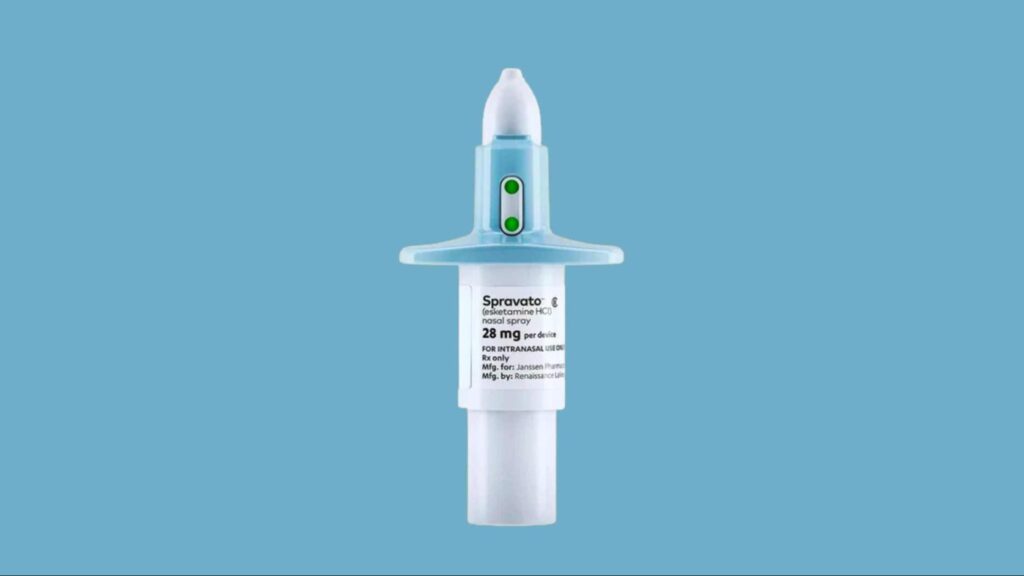
TRICARE’s policy on Spravato™ (esketamine) nasal spray offers coverage for military members with treatment-resistant depression, among other FDA-approved indications.
To access this Spravato, members must receive preauthorization, a prerequisite to ensure the treatment’s medical or psychological necessity. The policy mandates that qualified professionals or institutional providers must render Spravato™ treatment. Patients cannot take the medicine home. Additionally, the policy underscores that Spravato™ treatment should be part of a comprehensive care plan involving individual or group psychotherapy.
Military members seeking Spravato treatment must consult their Primary Care Manager (PCM) for referrals and follow specific preauthorization procedures to ensure coverage aligns with TRICARE’s guidelines.
Free ketamine for veterans with VA authorization

Veterans nationwide can access free IV ketamine infusions through the VA’s Veterans Care agreements with select private ketamine clinics. These partnerships make cutting-edge mental health treatment more accessible to ex-service members.
On the East Coast, veterans in Bethesda, Maryland, McLean, Virginia, and Washington, DC, are eligible for free ketamine therapy at Avesta.
Here’s how it works.
- Veterans can start by contacting their VA provider or Avesta to assess if they are good candidates for ketamine therapy.
- Under the Veterans Care Agreement, veterans must receive an “Authorized Referral” from a VA provider to receive free treatment.
- Once authorized, the Avesta team will schedule the treatment sessions, with no out-of-pocket cost for IV Ketamine and Spravato treatments.
- Qualifying conditions for this program include treatment-resistant depression, PTSD, suicidal ideation, anxiety disorder, and chronic pain.
- Avesta’s in-network VA coverage areas include a broad region encompassing parts of Washington D.C., Northern Virginia, and Maryland.

The Bottom Line
Ketamine infusions and Spravato therapy are safe, feasible, and effective interventions for rapidly reducing depression among high-risk patients. Integrating it into mental healthcare for suicidal veterans offers a lifeline to the people who risk their lives for freedom.
Call Avesta today to explore your options for free ketamine therapy through the VA. We’ll assess your eligibility and provide the tools you need to heal.
